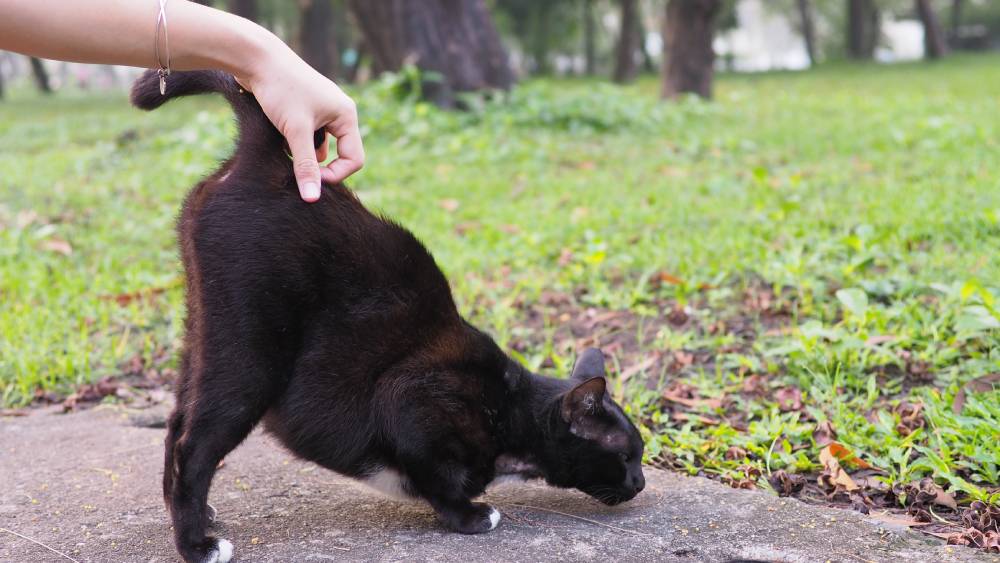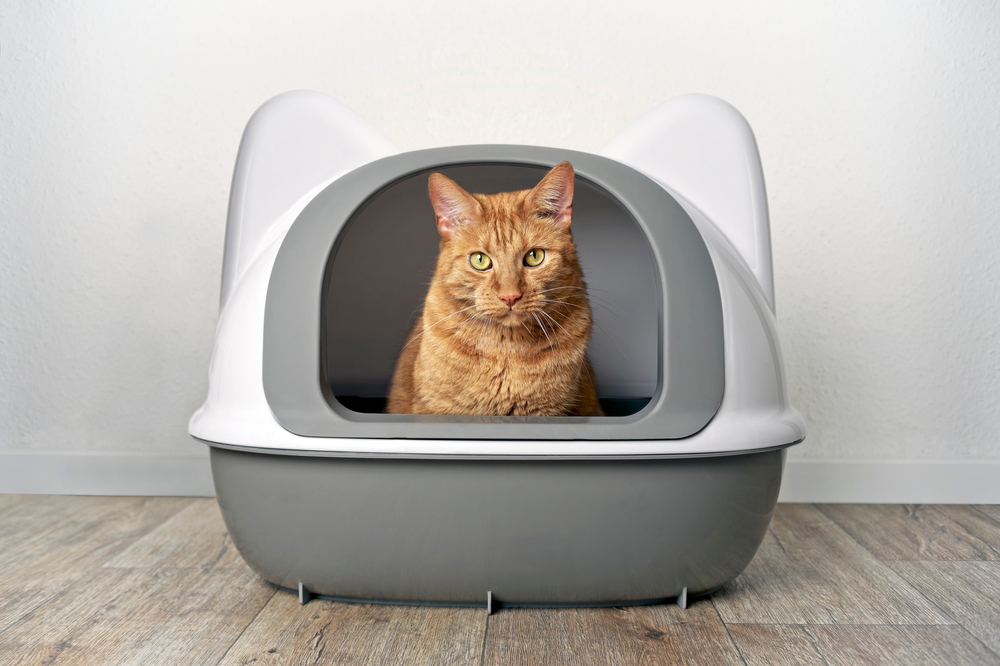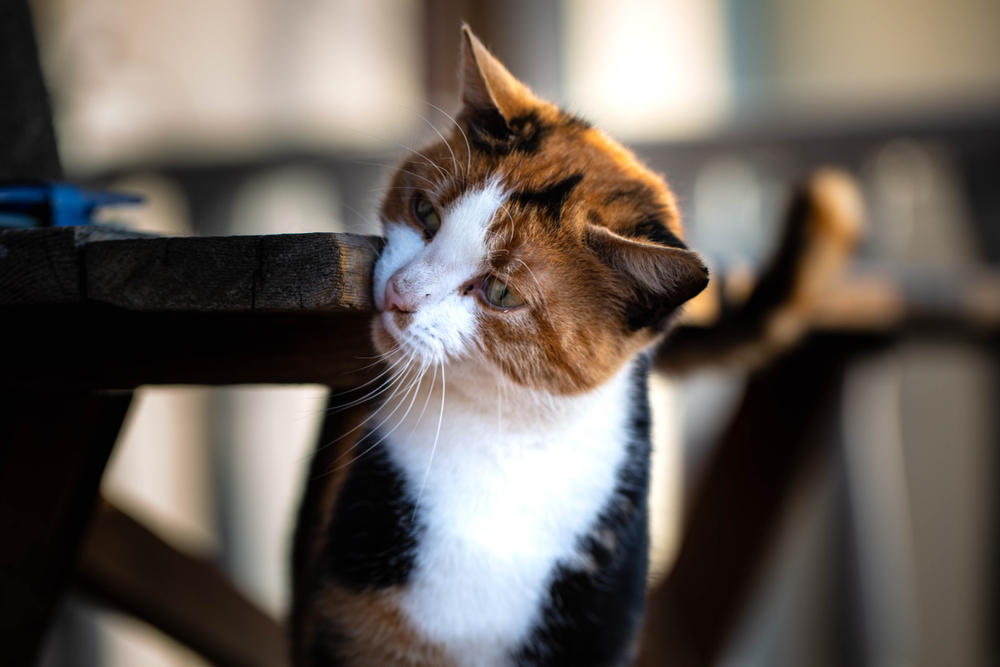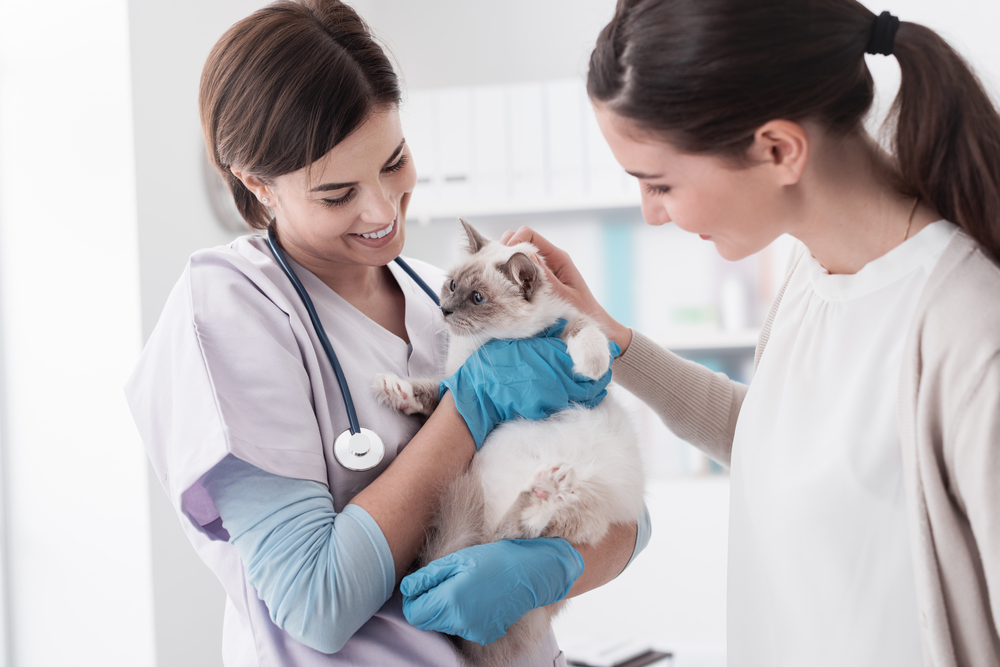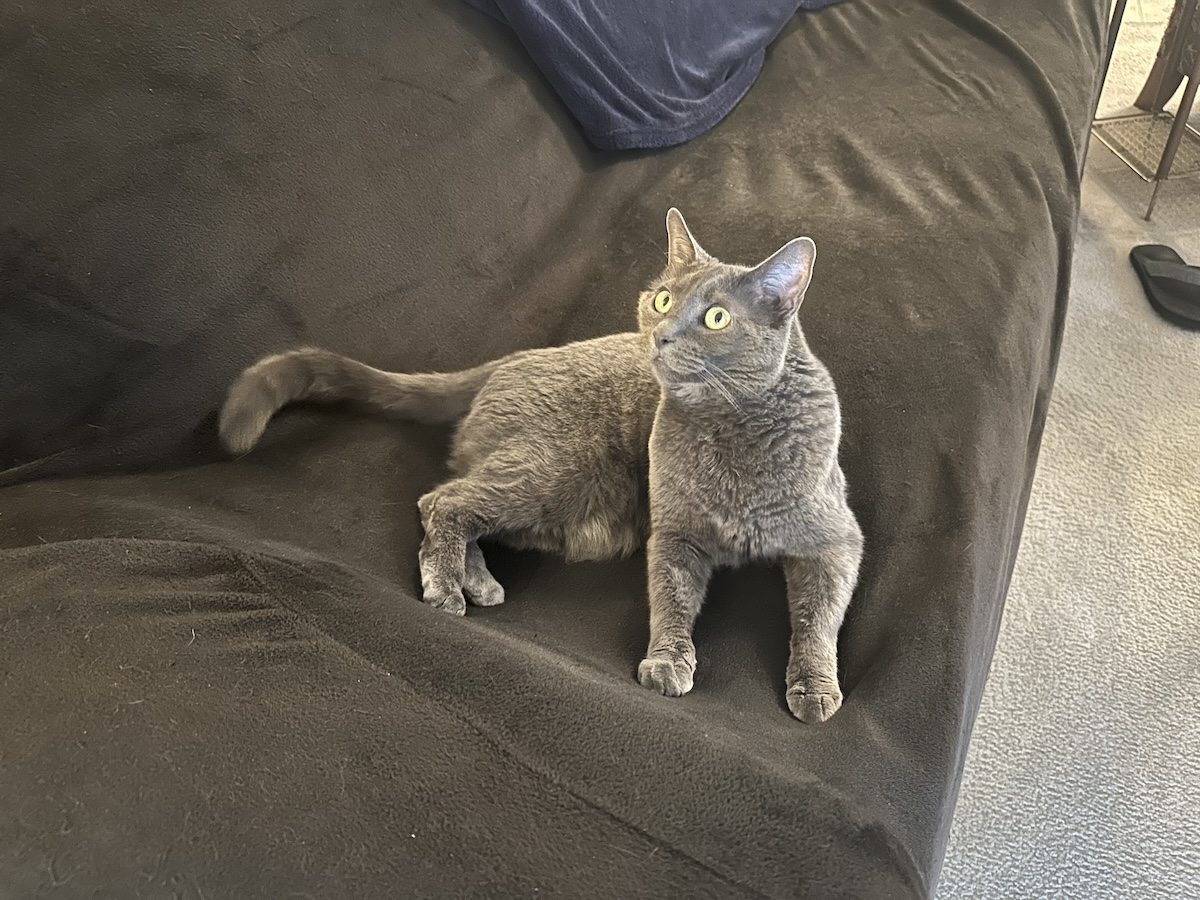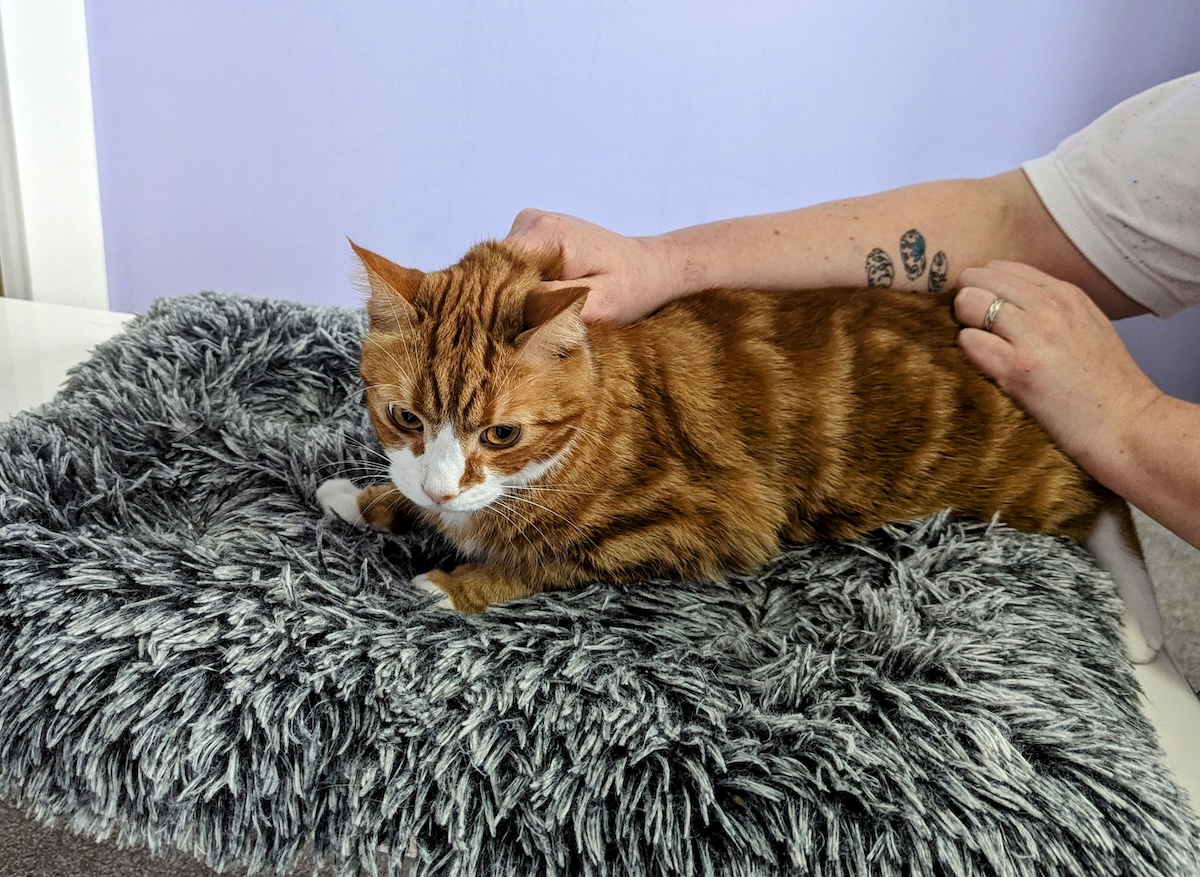Almost every cat owner has experienced playtime gone wrong. One minute, you’re petting your cat’s fuzzy head, and the next, they’re biting your fingers. Well, assuming that your cat isn’t drawing blood with the bites, it is safe to assume you’re “suffering” from love bites.
Love bites are typically harmless nips that can occur for various reasons. In this article, we’ll discuss what love bites are, why they happen, and what you can do when your cat bites for real.

What Are Cat Love Bites?
As mentioned, love bites are gentle bites that shouldn’t draw blood. Petting is a common scenario that may lead to love biting. Cats that give love bites tend to be relaxed but can also be hyperactive or feisty.
When cats give love bites, they don’t often display other signs of aggression, such as hissing, swatting, or growling. If your cat exhibits those behaviors, take a step back. Those are signs that your cat is aggressive, and a real bite can follow shortly. But we’ll talk about that more in a moment. Instead, let’s take a look at why love bites occur.
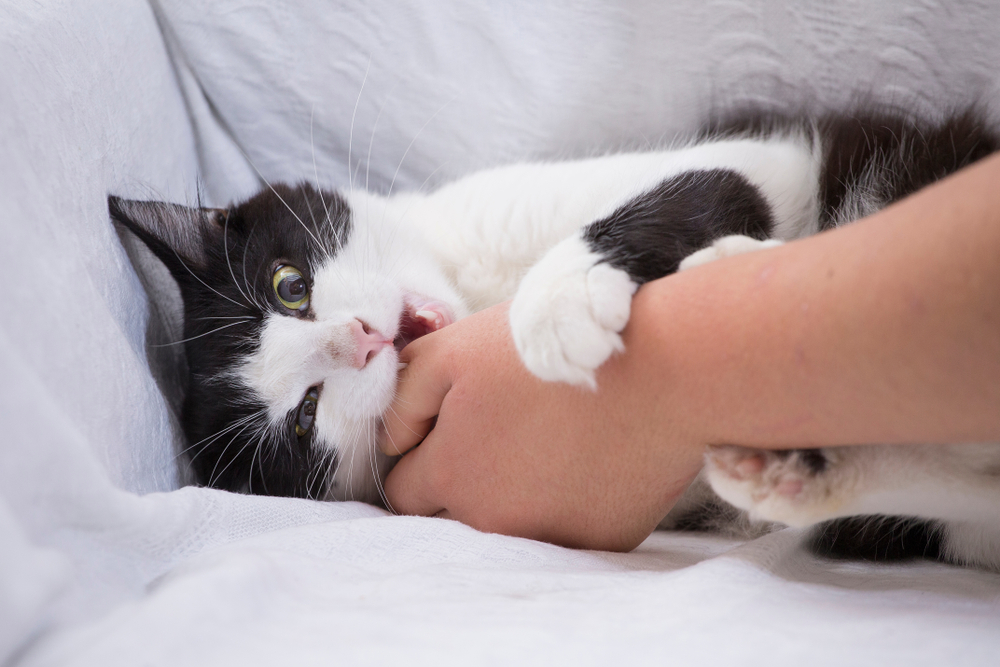
Why Do Love Bites Happen?
Research on why cats give love bites is limited, but there is plenty of speculation. First, it is crucial to understand that the phrase “love bite” is a bit misleading. When cats give you a love bite, they aren’t showing affection. Instead, they are communicating that they are done with whatever activity the two of you were involved in.
If you are petting your cat and then they nip your hand, they are telling you nicely that they do not want to be petted anymore. If you continue petting them, they may give you a proper bite to get you to stop.
Another reason that love bites occur is due to the cat’s natural grooming process. Cats lick themselves while grooming, but they also nibble on their skin. If they begin the task of grooming you, you may get a nibble or two as they go about their work.

The Dos and Don’ts of Reacting to Love Bites
Although love bites are typically painless, that doesn’t mean they are pleasant. To avoid being the target of your cat’s nipping, here are some dos and don’ts to responding to love bites.
Dos
After a love bite incident, reflect on what led up to the nip. Consider your cat’s body language. Did they seem distressed, agitated, or otherwise overstimulated? Paying attention to your cat’s ears, eyes, and tail can help determine their feelings.
Instead of approaching your cat for interaction, invite them to play with you. This allows your cat to set the mood of the interaction and minimizes your chances of getting a nip from an overexcited cat.
It’s also wise to pet your cat only in areas they enjoy. For example, some cats like being petted on their head, but few enjoy having their paws touched. Staying away from your cat’s danger zones can keep their teeth away from your hand.
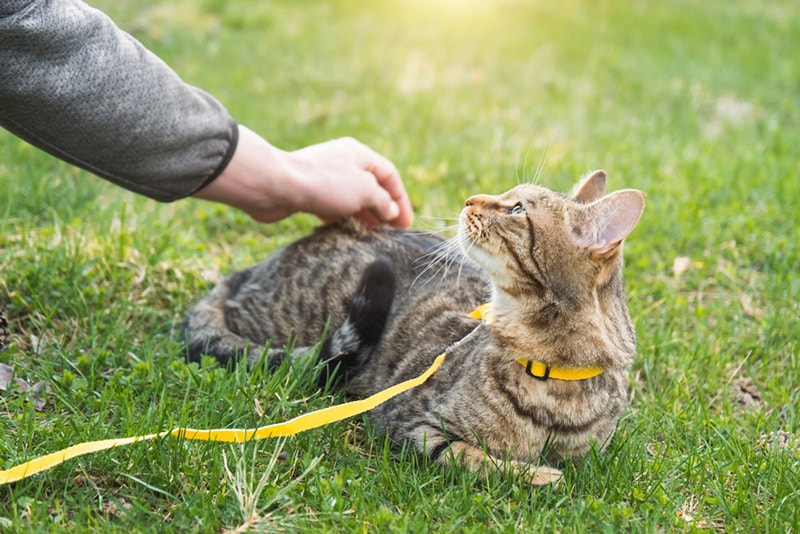
Don’ts
Don’t make petting an extensive experience; brief interactions are best with cats. The longer you pet your cat, the more likely you will get a love bite.
If you get a love bite, never punish or frighten your cat. Doing so may cause your cat to become fearful and aggressive, and then you may get a real bite.

What to Do When There Is No Love in Your Cat’s Bite
Sometimes, when cats bite, they just plain bite. When a cat bites, the reason for their behavior typically falls under three pain categories.
Overstimulation
Excessive petting, loud noises, crowded rooms, and unfamiliar people can overstimulate cats. If your cat is overwhelmed, all it takes is one wrong move for your cat to lash out at you. This doesn’t mean your cat is being vindictive, and it doesn’t mean they hate you.
It means that they’re stressed, and they only have so many ways to release that tension. You just happened to be in the wrong place at the wrong time. If you’re surprised by your cat’s bite, you likely missed several warning signs they tried to send you.
Cats don’t typically bite their loved ones at the drop of a hat, so pay close attention to their body language to ensure that you aren’t accidentally overstepping their boundaries and setting yourself up for a bite.
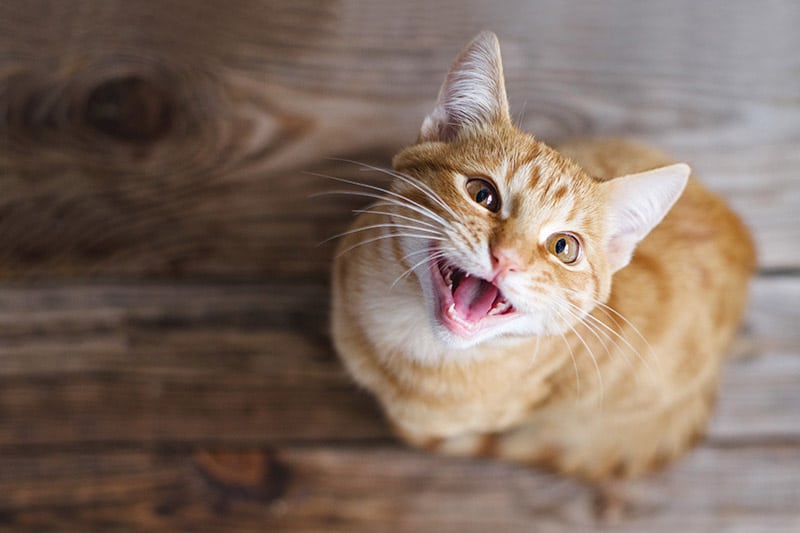
Fear
Feline aggression is when your cat acts defensively to something in their environment that feels threatening. If your cat feels forced into petting or otherwise trapped by you, they may bite you as a response.
Like with overstimulation, fearful cats typically give warning signs before biting. You may notice hissing, growling, raised hackles, flattened ears, and more. If you spot these signs, give your cat some space.
Pain
Another common reason cats bite is due to pain. It can be difficult to tell when cats are in pain because they work hard to mask it. If you notice your cat is hiding more often, being reclusive, or neglecting their care (such as grooming, eating, or drinking), they may be experiencing a medical complication that causes them pain.
If that is the case, you should take them to the vet right away so they can get the care that they need.

How to Respond After You’ve Been Bitten
Cat bites can be dangerous. If you’ve been bitten, a prompt response is essential. First, you’ll want to evaluate the condition of the bite. If the skin is unbroken, you are fine and do not need to seek medical treatment.
On the other hand, if the skin is broken, examine your injury to determine how bad it is. A shallow wound that is barely bleeding should be washed out, sterilized, and bandaged. You should monitor it to ensure that it is not growing worse. If the wound is severe and deep, you should immediately seek emergency medical treatment.

Final Thoughts
Love bites rarely feel loving. Instead, they can be annoying or even surprising. If you’ve gotten a love bite from your cat, don’t respond negatively. Remember that love bites are your cat’s friendly way of telling you they are done with something. When the alternative is that you cross your cat’s boundaries, break their trust, and end up with a worse bite, a little love bite now and then is a small price to pay.
See Also:
- Why Does My Cat Bite My Ear? 10 Possible Reasons
- Living with Cats That Love to Bite: Olga’s Fondness for Fangs
Featured Image Credit: SerPhoto, Shutterstock

